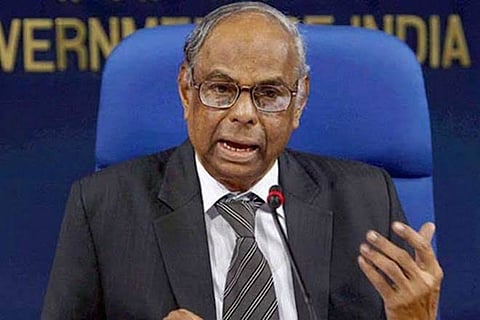

The Tamil Nadu government on Saturday set up a 24-member high-level committee, headed by former RBI Governor C Rangarajan, to assess the fiscal challenges being faced by the state and to also formulate the way forward in the context of COVID-19 pandemic. The final report is expected to be submitted within three months.
According to the government, the committee comprises economists, industrialists, vice-chancellors, bankers and government officials, among other experts. Among its members are former Chief Secretary N Narayanan, Vice-Chancellor of University of Madras P Duraisamy, former Chairman of Murugappa group A Vellayyan, India Cements Vice Chairman N Srinivasan, TVS Motors Limited Chairman Venu Srinivasan, Prof PG Babu, director of Madras Institute of Development Studies (MIDS), Vice-Chancellor of Tamil Nadu Agriculture University and Professor M Suresh Babu from Indian Institute of Technology - Madras.
The committee will assess the immediate and medium-term impact of the lockdown and the consequences of social distancing on the state’s economy.
This committee will also study the opportunities and threats to figure out the measures required to help the economy get back on track. It will also put forward suggestions to reform measures that are needed to support growth in different sectors that have taken a big hit due to lockdown.
The committee's purpose or terms of reference (TOR) are:
According to the government, the committee will submit its final report within three months and may also submit an interim report as it may deem fit.
(With inputs from IANS)